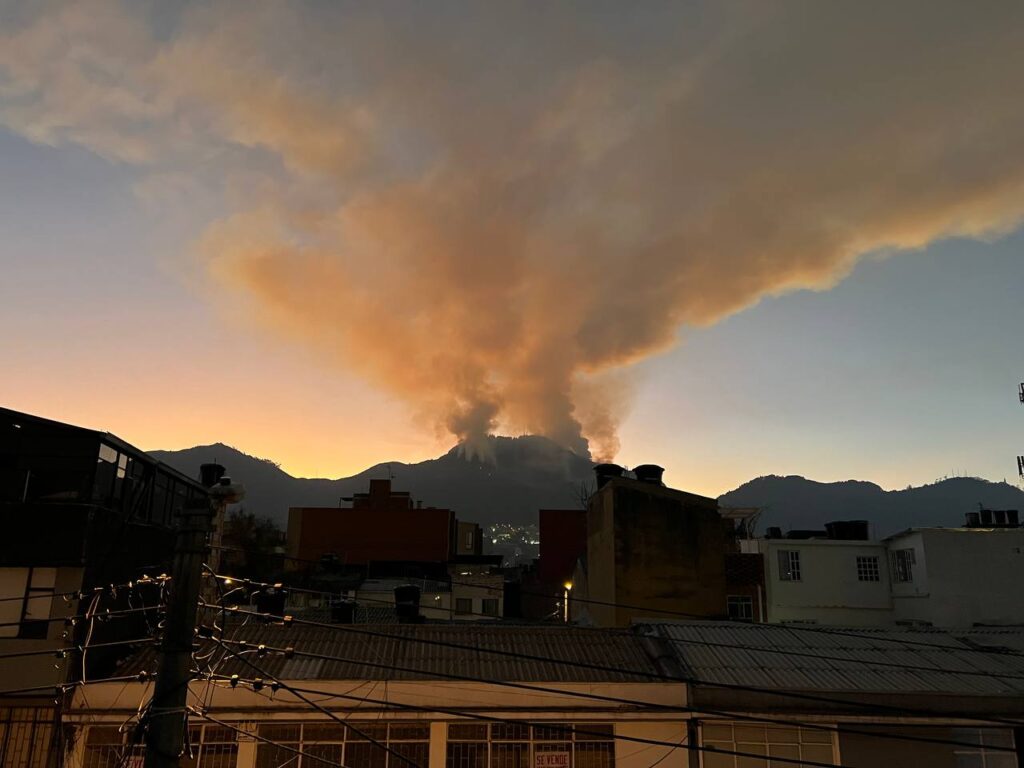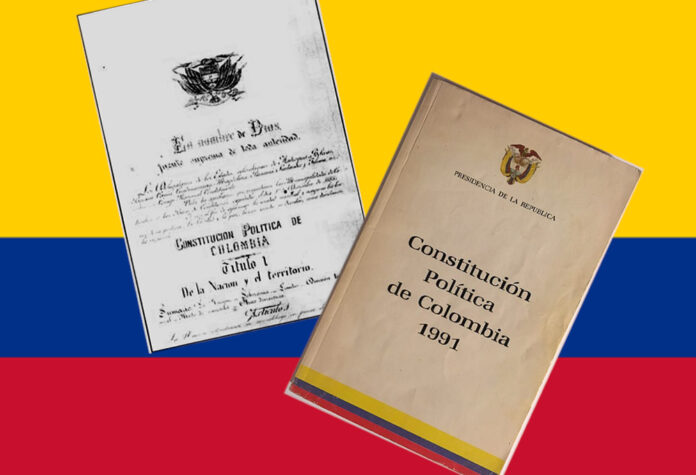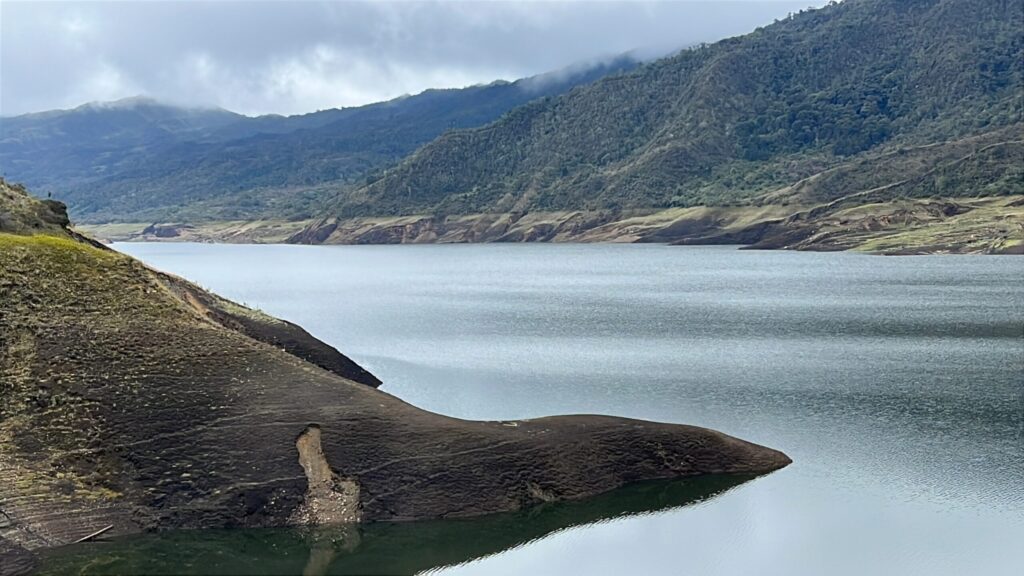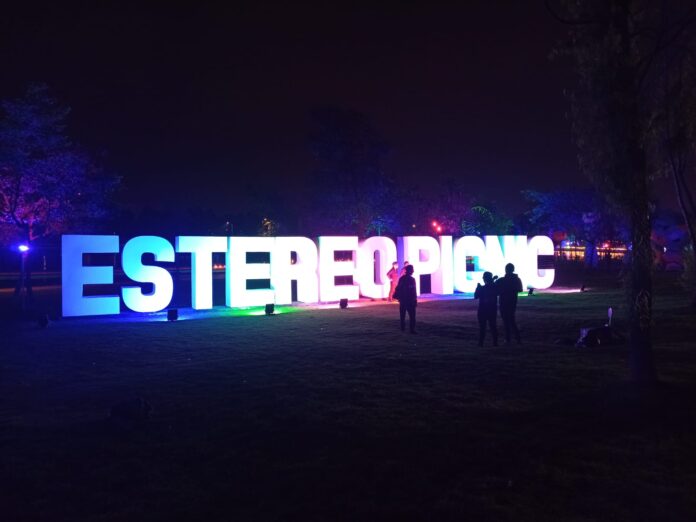As 2024 comes to an end, we look back at the year in Colombia. As ever, it’s been a curious mix.
It’s been another one of those years in the country where you look back at January like it was a decade ago. A lot happens in Colombia, while some things seem to never change.
There’s been a lot going on from politics to sports, entertainment to construction. Some of those have seen great changes and unusual events, whereas others have trucked along playing all the classic hits.

We’ve rounded up the various goings-on to fill you in on some of the year’s highlights and lowlights.
Petro lurches from blunder to blunder
Gustavo Petro hasn’t had that bad a year, in one sense. However, he has got the square root of nothing done while also making a right spectacle of himself. He loves a bit of grandstanding, that now means carting around M-19 flags to official engagements.
Having crossed the halfway point of his presidency, it’s becoming ever harder to see what his legacy may end up being. It’s unlikely that the doomsters will be vindicated – his inaction has meant the country can get on with running itself and inflation is back under control.
He’s taking plenty of trips too, spending more time outside Bogotá than in the seat of power. In Uruguay that meant trying to show off his M-19 flag, in Panama wandering around with strange women and in Barranquilla getting booed by football fans.
There were rumblings of wanting to change the constitution, but those seem to have subsided. He’s started to muddy the waters around reelection, saying he won’t seek it but making vague comments suggesting it wouldn’t be bad. Petro also used coup language earlier in the year, making high drama of blocks on his governance such as an investigation into his campaign funding.

After the farce of the Panamerican Games being yanked away from Barranquilla, COP16 was a chance for redemption. Choosing Cali as a host city was a huge risk, and it didn’t pay off. Delegates ended up in motels, few big names turned up and nothing really got done.
He’s shed a whole load more ministers, in what seems to be his favourite pastime: binning people off. Latest to go was finance minister Ricardo Bonilla in scandal-adjacent circumstances. That means Petro is now on his third(!) finance minister.
Not much success on the hiring side of things either, mind, with his naming of Matarrife director Daniel Mendoza as ambassador to Thailand raising hackles across the political spectrum. Petro initially doubled down on that until Mendoza withdrew himself over misogynistic tweets he had made.
Proper scandals have been strangely thin on the ground this year. There’s the ongoing case of Nicolás Petro in the background, but most of the shenanigans have revolved around nepotism and appointments, with the Alcocer family of Petro’s wife prominent.
Femicides have risen to record levels, which has flown under the radar a bit. The current administration is certainly more friendly to the feminist cause, but has not translated that into action. Like many groups, feminist supporters of Petro seem to have been cast aside now he’s in power.
Paz Total has been so far more like Fracaso Total. Talks are either stalling, failing or non-existent with various groups and conflicts have continued throughout the year. This isn’t ideal for a president who has a background in guerillismo.
The conflict in the Middle East again made waves in Colombia with Petro deciding to cut diplomatic relations with Israel. Less dramatically but perhaps more worrying as a trend, the UK ended visa-free entry for Colombians and Germany announced a review of its policy. Both countries have seen asylum claims rocket in recent years.
In Bogotá
In the capital itself, the Embera occupation of the Parque Nacional finally ended in the autumn, with the community mostly leaving to return to their ancestral lands in Northwest Colombia.
La nevera’s reputation as a cold, wet place took a bit of a hammering in 2024. First, the hot, dry conditions of January-February saw fires break out repeatedly, mainly in the cerros orientales.
While they came to an end eventually, water rationing struck in early April and stayed for the whole year. The reservoirs have stayed low, however, so while there’s a festive break for the holiday period, it’ll be back in force in early January.
It’s not been fun living under the restrictions, but this is a multifaceted problem. Simply put, we are all using far too much water and at the same time the system is chronically underfunded. The latter may come as a surprise to those that pay the seemingly ever-increasing EAAB bills. Throw in a short and weak rainy season and it might be April before relief comes.

New mayor Carlos Fernando Galán has been quietly getting on with things. Not all of his campaign pledges have come to pass, but he’s managed not to have any nightmares and deal with the central government reasonably well. A cautious OK for now, but progress will need to be shown soon.
Construction on the long-awaited Metro de Bogotá is in full flow now, which is no mean feat. It means plenty of short term pain with road closures and transmi redirects in place, but the long term vision is much better. Galán has largely kept Petro from meddling, meaning that the project is on schedule so far.
The ciclovía celebrated its half-century in muted form. Slightly swallowed up by Christmas and bleak news domestically and worldwide,.it barely registered with many people in the end. Sad, really, for an event that could be considered the capital’s defining feature.
Crime remains on the up, despite a number of high profile top level arrests by local police. While recent figures show a decline in certain types of crime, there is widespread mistrust of the official statistics and plenty of high profile incidents such as broad daylight murders in the centre of the city.
Sports
The Copa America was huge here for once, with James Rodríguez rolling back the years to lead the country to the final. Sadly, they fell at the last hurdle against world champions Argentina in mildly dubious circumstances.
Colombia had a good penalty shout turned down at the death after Lautaro Martínez’ late strike in extra time had broken the deadlock. The journey was soured a little by farcical scenes at the stadium as fans were blocked from entering and then invaded. The semifinal, too, saw clashes between fans and Uruguayan players who ended up storming the stands.
In the mountains of Europe, los escarabajos of Colombia made their mark with some dashing riding even if there was little to show in cold hard results. It’s still welcome after some hard years following Egan Bernal’s Tour win.

Smaller sports had a good year, with the Aussie Rules team being invited to the Transatlantic Cup for the first time ever. Both the men’s and women’s team jetted out to Canada and acquitted themselves well.
Entertainment
Festival Estéreo Picnic roared into the Parque Simón Bolívar and instantly looked right at home. The event has traditionally taken place in the far northern outskirts or satellite towns rather than the heart of the capital, so this was a huge change.

It delivered, too, with Fercho cementing his position as reggaeton’s rising star. Feid stormed the stage under a spectacular drone show and drew by far the biggest crowds. Big nineties guitar bands had a moment, too, with the Offspring and Limp Bizkit getting everything bouncing.
Standout concerts in the city included the Colombian queen searching for world dominance, Karol G. Shakira swung by too, as well as Iron Maiden and Megadeth for aging rockers.
For Latin music lovers, the Festival Cordillera acts as a regional counterweight to Estéreo Picnic, featuring mainly Latin bands. That’s continuing to build its reputation as an event to play and offering an alternative to foreign-dominated lineups. It doesn’t bode well for Rock Al Parque though, as this is a serious rival.
What next?
The coming year will see jockeying for election runs in the major parties. Final decisions are likely to be made around the turn of the year, so expect plenty of grandstanding come autumn.
In Bogotá, there will be more disruption from water cuts and metro construction. As ever, expect the unexpected and some bizarre stuff. In the end though, the country will probably end up much the same as it is now after twelve more months.





